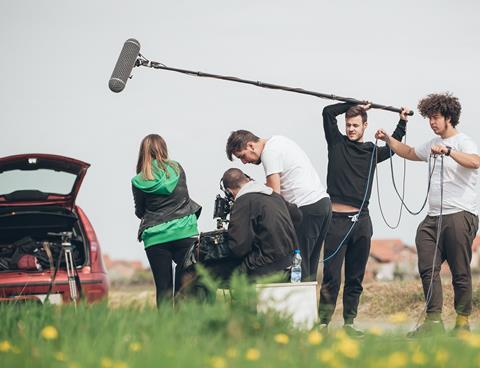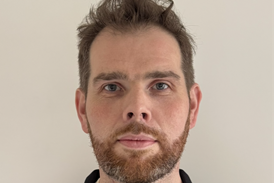Feasibility of shorter hours examined in Timewise and Bectu Vision research
Implementing shorter working days would increase production costs by just 4% on scripted shows, according to new research.
Timewise, a consultancy specialising in flexible work, and Bectu Vision, which offers skills development to crew based in Scotland, undertook a survey of 812 people working across scripted to set out the feasibility of implementing an eight-hour work day.

The study was funded by BBC drama commissioning, Screen Scotland and The Film and TV Charity and was undertaken before the US labor strikes last year.
While shorter days would lengthen production and post-production by around two weeks, the report indicated that crew would be supportive of this. Some 41% of respondents cited a better work-life balance as their top priority and said they would be willing to take a cut in pay proportionate to the shorter hours worked.
Only 10% of those polled cited income as their top priority, which flies in the face of assumptions among industry leaders cited in the report as suggesting that crew are motivated primarily by money.
Emma Stewart, co-founder of Timewise and who led on the report, said that the report exposes many “myths and assumptions” about what is most important to crew.
“What became clear from the survey is that, while people want to earn a decent income, if they’ve been on a significant number of productions where they have worked excessive hours, the trade-off between a better work-life balance and compromising on income is real. People are prepared to do that and want to do that,” she explained.
While the 10-hour maximum work day agreed by Pact and Bectu last year addressed the issue of long days, a whopping 98% of respondents said they are interested in a shorter working day, with 71% of these people stating they would still be interested even if it impacted their daily rate. The survey reports that this would lead to crew cost savings of between 2% to 5%.
Drawing on the Swedish model, Stewart and her team designed a framework for an eight-hour day and shadowed two Band A productions to find out how feasible implementation would be.
Recommendations
The report suggested three takeaways for commissioners to undertake in order to consolidate its findings.
The first is that commissioners and wider funders address the gap in practical experience of a shorter working day by funding a production where the shorter day would run across all departments. This should be documented and include a review of the final cost and potential savings.
The second recommendation is to improve planning in the pre-production stage, with initiatives such as earlier meetings with writers leading to scripts to be locked-in well ahead of principal photography, as well as the first assistant director onboarding earlier to drive efficiencies in the schedule.
Finally, once the production has wrapped, commissioners should share their experiences with the wider industry, in order to “open and own” the conversation and challenge current behaviours. Stewart said that if shorter hours are to be implemented it needs to be a cultural change driven from the top down.
Stewart also said that although the report is focused on scripted, the blueprint can be trasnferable to the unscripted space.
Embedded behaviours
One of the key barriers to change outlined in the report is the embedded mindset of “if it doesn’t hurt it doesn’t work” which is exacerbated by the freelance nature of crew, who feel they cannot push back on the long hours culture for fear they will be replaced.
The report highlighted that, while no team or individual argued against the possibility of implementing shorter working days, it is “no one’s priority” to do so. It also noted that there is a stigma around open dialogue that questions the status quo, which must be rectified.
Stewart said that the biggest challenge to changing this mindset is the lack of an example to go by; she hopes that the roadmap set out in the report will operate as a “North Star” for industry decisionmakers.
“When you’re in a competitive market, in a tough industry with a big pipeline of people wanting to come into it and you’re working in really intensely, there are very few moments to stop and reset and try something different,” she explained.
“Although there are some amazing organisations that offer support such as industry bodies, the unions, etc., there’s been a lot of debate around this as a problem, but there aren’t examples of an alternative way.”
She also highlighted the many myths that are held among departments, where one team may react positively to shorter working hours, but indicate another team may not be able to do so for a multitude of reasons. She hopes that the research galvanises crew to come together to speak about the
“Everybody thinks it’s going to cost a fortune and it’s just not viable. We wanted to disprove those assumptions,” Stewart continued.
“You hear it all the time ‘There’s no other way, we can’t do anything else with the budgets we’ve got’. And everybody points to everyone else to say, ‘I could do it [work shorter hours], but they can’t do it’. And that was really interesting on set, that thing of it’s everyone else’s problem.”
Tiewise and Bectu Vision are now pulling together a wider commissioners’ group to explore how to take the roadmap forward.
Stewart said: The next step is for one of the broadcasters gets behind it and then we sit in a room with a commissioner and a production company, and we model it. We build it for real, and then we document it and then we share that learning. Then we hope that gets picked up and rolled out.”





























No comments yet